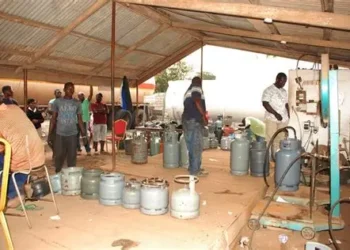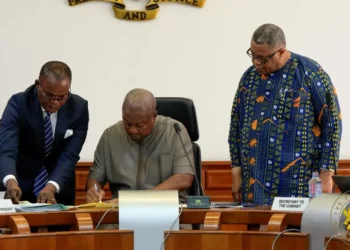Bank of Ghana Governor Dr. Johnson Asiama says the recent appreciation of the cedi has led to a near 50% decline in remittance inflows, as many Ghanaians abroad have paused sending money for local projects.
The development comes at a time when the local currency has gained significant ground, appreciating by over 40% against the US dollar, 31% against the British pound, and 24% percent against the Euro, supported by improved macroeconomic stability, falling inflation, and strong external reserves.
Speaking at the launch of the Bank of Ghana Chair in Finance and Economics at the University of Ghana, Dr. Johnson Asiama noted that while the appreciation signals growing investor confidence and a stabilizing economy, it is also causing behavioral shifts among diaspora communities.
“The appreciation of the cedi so far, Ghanaians are interpreting this differently, and it is part of the problem. People who used to send remittances for projects have suddenly stopped, and so we have observed a near 50% decline in remittance inflows.
“By the way, if you are doing projects in Ghana, cement prices must also adjust, not so? Inflation is coming down so the prices of those building materials must also adjust and so therefore, on the balance it shouldn’t matter.
“Someone told me this morning [August 5, 2025], we need to do a roadshow across the top remittance originating countries…most of the countries Ghanaians are…we need to go and explain to them to continue sending their monies regardless where the exchange rate is,” Dr. Johnson Asiama remarked





































